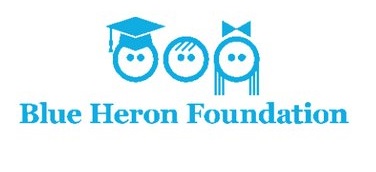2018 Revival ARA Congress
ROMANIA AT THE GREATER UNION CENTENNIAL ANNIVERSARY
Workshops
COLLOQUIUM (1 hour)
One Century of Education
in Romanian Universities
The 42nd Congress of the
American Romanian Academy of Arts and Sciences
Iasi, Romania, August 26-29, 2018
Organizer and Moderator: Florin Simion Egner
Writer, Romanian Writers’ Union,
Manager Botoșani Metropolitan Area
Botoșani, Romania
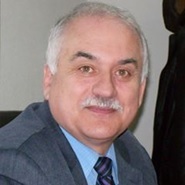
Florin Simion Egner born in 1954 in Romania studied at: “Gheorghe Asachi“ Technical University of Iasi – Industrial Electronics (1973-1979); Political Sciences Academy of Bucharest – Economics (1988-1989); “Spiru Haret“ University – European Management (2005-2007).
He worked for “Electrocontact“ Botosani, production in the fields of Electrotechnics as Chief Services Officer (1979-1995); “Bomatex“ Botosani, light industry production as General Director (1995-2000); Botoșani City Hall as Mayor (2000-2004); The Government of Romania, National Authority for the Regulation of Public Utility Services – Governmental Expert (2004-2013); Inter-communitarian Development Association “Botosani Metropolitan Area“ – General Director (present). Florin Simion Egner is an author of patents for inventions and innovations; literature book author; member of the Union of Professional Journalists of Romania. He has a passion for technical sciences, social politics, smart city politics, literature, history.
Published books: “History of Armenian community in Botosani (1045-2012)“, in 2012, and second edition in 2014; “Armenian School in Botoșani – seven centuries of existence“; “Armenian Houses“; “Armenian Cemeteries in Botoșani“, 2013, 2014 and 2015; “Cultural and Religious Patrimony of the Armenian Community and the Orthodox Church Parish“ in Botoșani 2013, 2014; “The Armenian Church In Botosani“ , 2014; “History And Heritage Of The Armenian Community In Botoșani vol. I“ (535 p, 400 photographs) 2014; “A Journey Through Armenia, A Beautiful Country Full Of Contrasts“, 2014; “Almost A Century Among Friends“ 2014; “Armenian from Botoșani in the Romanian Army“, 2016.
Abstract: An incursion into the education history at university level with a review on the essential aspects which crystallized during a century producing a group of highly educated people who are honoring Romania inside and outside the country. Perspectives to bring in the Romanian universities the effervescence of an education able to motivate the students to succeed each, in their capacities, to promote the talents and at the same time to create a highly educated population at all levels, for a country to be REBORN in prosperity and happiness.
Keywords: education, students, performance, country perspectives
Panel:
Acad. Prof. Constantin Corduneanu, Arlington Texas University, USA
Prof. Nicolae Boțu, Civil Engineering Faculty, “Gh. Asachi“ Technical University, Iasi
Prof. Corneliu Munteanu, Mechanics Faculty, “Gh. Asachi“ Technical University Iasi
HANDS-ON WORKSHOP
HuPoTest – Self-Evaluation Test
and Training of Mental State
The 42nd Congress of the
American Romanian Academy of Arts and Sciences
Iasi, Romania, August 26-29, 2018
Moderator: Gheorghe Dragan
Ph.D. Physics, retired, Bucharest 011315, Romania
gdf.dragan@gmail.com, www.gdfdatabanks.ro
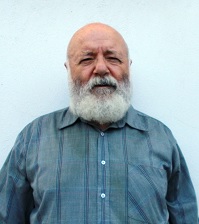
Gheorghe Dragan, born on the 1st September 1945, Ploiesti, Prahova, Romania.
1968 – Graduated from the Faculty of Physics, University of Bucharest.
1969-1981 head of Material Testing laboratory, Polymer Center, ICECHIM-Bucharest.
1980 – Ph. D. in Physical Sciences (University of Bucharest) on the original subject of amorphous-crystalline coupling in polymers in relation with thermal, mechanical and chemical properties and treatments.
1981-1988 head of the original project “New Forms and Sources of Energy“ – contract with the NIST Center for Nanoscale Science and Technology (CNST). Original research and results on structure and properties of water and aqueous solutions by developing topo-energetic working principles defining the nature and amplitude of composite systems, i. e., systems in transformation and original analytical techniques.
1988-1993 head of Research Department of IAMC-Otopeni.
1997-1999 expert metrologist, Legal Metrology Bureau of Romanian, Bucharest.
1993-2009 owner of GDF Databanks-srl dealing with the development of original procedures in defining data bases and measuring instruments: Viscodens calorimeter, ISOCALT, adiabatic calorimeters; High Resolution Mixing Calorimeters (HRMC).
1997- present editor of GDF DATABANKS BULLETIN (ISSN 1453-1674) and of the website www.gdfdatabanks.ro – continuing original research mainly on material science in relation with human mental field and other bio-fields.
Abstract: This is a workshop in which the participants will learn the main stages and significance of this mental self-evaluation test.
HuPoTest is a mental test and work-out method, on one side very simple to perform, on the other, very deep in meaning and effective in self-controlling the mind. Such a method is needed in the current dynamics state of the society characterized by the continuous and accelerated degradation of the human mentality at both individual and global level with destructive consequences on planetary and universal level. The HuPoTest was initiated in 1967 and is in constant development. The HuPoTest proves once more the basic principle of Indian (Yoga), Greek (Thales) and ancient Rome (Juvenal) philosophies: “Healthy mind in a healthy body“.
Those wishing to take part in this workshop are kindly requested to:
- come with a personal laptop with Wi-Fi to connect to the Internet with any version of Windows, Word and Excel (preferably Office 2003);
- bring a memory stick (minimum 1 GB) to retrieve explanatory documentation;
- sign up early for this workshop via a confirmation e-mail message.
Keywords: ancient philosophy, HuPoTest, mental training, self-evaluation test
SEMINAR
Mediation As A Method Of Pacifying Conflicts
The 42nd Congress of the
American Romanian Academy of Arts and Sciences
Iasi, Romania, August 26-29, 2018
Moderator: Beatrice Blohorn-Brenneur1, Oana and Dragos Calin2
1France, 2Judges, Bucharest, Romania
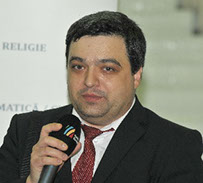
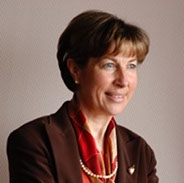
Beatrice Blohorn-Brenneur ( http://www.beatricebrenneur.
com/ )is Mediator for the Council of Europe. She has institutionalized mediation at the Grenoble Court of Appeals, where she mediated hundreds of cases. She is the President of the International Conference of Mediation for Justice (CIMJ), the European Association fo Judges for Mediation (GEMME), and the GEMME-France. Judge Brenneur has written extensively about mediation, and for many years provided mediation training to judges at the French National Judicial College.
Since 2009, Beatrice Blohorn-Brenneur has been a conventional and judicial mediator and mediation trainer. She has also been mediator at the Council of Europe since 2010.
She began her career as a lawyer while serving as assistant at the University of Aix-Marseille, before becoming a judge from 1975 to 2008.
She is considered the pioneer of the institutionalization of labor court mediation before the Court of Appeal. In her capacity as President of the Courts of Appeal of Grenoble, then Lyon, France, she developed a practice of mediation and “New Judicial Conciliation“, in the fields of work, family, co-ownership, neighborhood and commercial matters.
In a relatively short span of time, between 1996 and 2003, at the Court of Appeal of Grenoble, Beatrice Blohorn-Brenneur ordered 1,000 mediations with an agreement rate of 75 to 80%.
Based on this success, she left the profession of magistrate to become, since 2009, mediator and trainer in mediation. Since 2010 she has also been a mediator at the Council of Europe.
Beatrice Blohorn-Brenneur advocates the fundamental values of justice: listening, paying careful attention, fairness, respect and humanity. Her purpose is to pacify conflicts and to enable everyone to find appropriate solutions.
Marked by a great humanity, animated by the spirit of justice and her faith in the human being, Beatrice Blohorn-Brenneur tries to get people to overcome their conflicts so that, through mutual respect and by listening to the other, everyone can understand the other.
To succeed to impose mediation, one must change deep implanted habits, requiring chnaging mentalities. To achieve this, Beatrice Blohorn-Brenneur relied on associations of judges, lawyers and mediators she created. The movement started in France, but spread to Europe, and is now international. In 2003, she created the European Group of Magistrates for Mediation – GEMME – (Gemme.eu), then, in 2008, the association which brings together the members of the French section, GEMME-France and the International Conference of mediation for justice, CIMJ (cimj.com).
Beatrice Blohorn-Brenneur is the author of several books on conflict management and mediation including:
• Justice and mediation – Testimony of a Labor Judge, Publishing House Editions du Cherche Midi, 2006, (First prize at the International Literary Competition of Arts and Letters in France, Medal of the city of Colmar, France).
• Stress and Suffering at Work – testimony of a judge, Publishing House Ed Harmattan, 2010.
• From Disenchantment to Divorce – Judgment, Conciliation, Mediation, L'Harmattan, 2013.
• Mediation for all – Theory and practice of mediation – the legal framework of mediation, Publishing House Ed. Medias and Mediation, 2013 (translated into English, Romanian, Greek, Vietnamese and in the process of being translated in several other languages).
Beatrice Blohorn-Brenneur is also editor of collective works (see bibliography), created several films, and is the director of training sessions on communication techniques and mediation, in France and abroad.
The work of Beatrice Blohorn-Brenneur earned her the nomination as Officier de la Légion d’honneur / Officer of the Legion of Honor.
Dragos Calin of the 7th Section, dealing with civil cases and the cases of work conflicts and social insurances, Court of Appeal Bucharest, and the Co-President of the Association “The Forum of Judges of Romania“. Ph.D., specialist in commercial law, Head of Legal Department with the Financial Investment Company “Transilvania“ S.A. Brasov
Abstract: A special seminar on mediation will be conducted by Beatrice Blohorn-Brenneur and Oana and Dragoș Călin.
Mrs. Brenneur will talk about mediation, her practice and her books on this subject. Two of her books were translated in Romanian. Those who translated her books, Oana and Dragoș Călin, two judges from Bucharest, will also be present during the session and will present their opinion on mediation.
The mediation, which is known since ancient times, exists today in a modern and institutionalized form. It allows people to resolve their own conflicts with the help of a communication professional. Mediation is a method of pacifying conflicts in which one understands the other's point of view and makes the other understand one’s own point of view, in order to reach an agreement that is agreeable to all parties. It avoids lawsuits and the war that takes place there.
Mediation came into being, almost at the same time, in most countries of the five continents. Some countries, like Argentina or Italy, for example, have even made it mandatory before referral to the courts. It is becoming increasingly important in European countries, to the point that a European Directive has forced the European Community member states to introduce it into their judicial system. Mediation will continue to develop in the coming years.
Judges, lawyers, other legal professionals, business leaders, human resources managers, unions, mediators and all those who are directly or indirectly involved in conflicts are interested in this peaceful way of resolving conflicts.
Keywords: mediation, judge, communication, conflicts, legal professionals
WORKSHOP
Old Energy Techniques in Our Times
The 42nd Congress of the
American Romanian Academy of Arts and Sciences
Iasi, Romania, August 26-29, 2018
Moderator: Doina Tetcu
Physicist, Bucharest, Romania
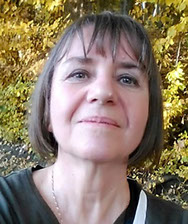
Doina Tetcu graduated in Physics from the University of Bucharest in 1971. For 38 years she worked as a researcher at the Atomic Physics Institute, Nuclear Reactors Institute and Research Institute for Materials Physics and Technology, Bucharest, Romania. Using nuclear methods, as the techniques of X-ray and neutron diffraction, she conducted solid state physics and crystallography research studying a wide range of materials, from those used in the aerospace industry to those used in the construction of nuclear reactors. She was involved in international projects concerning nuclear fusion reactors. With the use of infrared microscopy and X-ray topography she did studies of crystallographic lattice defects in semiconductors and semiconductor devices.
In the last 20 years Doina Tetcu has developed a strong interest in holistic medicine. She is a therapist in electro-acupuncture and polarized light, pain therapy, and is EFT internationally accredited. She is a qigong practitioner.
Abstract: This is a workshop on qigong which, along with acupuncture, is a basic component of Chinese Traditional Medicine.
Modern medicine begins to quickly take over and integrate concepts of other disciplines, the most interesting ones coming from the secular culture of the Far East. Since ancient times, Qigong art (qi – energy, gong – mastery) has been known in China as the method of preventing and treating diseases, fighting premature aging and prolonging life.
Qigong, the art of maintaining and improving health, is a method of “conserving“ life, strengthening the body and developing wisdom, which includes, besides physical training, the ancient philosophy and the entire tradition of Chinese culture. In the Chinese Traditional Medicine, all illnesses, both physical, and mental as well as emotional, are diagnosed and treated as fundamental imbalances in the vital energies of the human system. For more than 7000 years China’s qigong masters have used their mind to control energy, and energy to heal illness and prolong life. At the beginning, when qigong came from China to the West, people looked at it as something mystical, and this prevented them from perceiving it as it really is. Currently, qigong develops as a new science, the science of life, or the art of health. “The essential thing that emphasizes qigong is ethics.“
In practicing qigong, mind and body must be used together. Studies in China on the effects of qigong have shown that for it to “function“ there must be five basic elements: movement, respiration, concentration, relaxation and attitude. Qigong is the path to balance and harmony. The more balanced one is, the stronger one gets. At the same time, qigong develops wisdom. “True power comes from wisdom.“ “Cultivate the energies of childhood, rejoice,“ and create harmony first inside and then around you. Qigong practices serve to free the physical body from energy blockages. The energy circulates freely and the physical body becomes more harmonious.
I learned all these and many more from the international Master Lin Kai Ting, “Master“, as we like to call him, who first came to Romania in 1992, saying: “Qigong originated in China, but it belongs to the whole world.“
The workshop will focus on a few practical qigong exercises, easy to learn and beneficial to everyone, to which the audience is invited to participate (moving exercises or static exercises, the first ones training the physical body and the mind, the latter moving the energy inside the body, through mental activity and breathing).
Some elements of energetic psychotherapy will also be presented. These is a combination of ancient Chinese acupressure and modern psychology, resulting in what is called EFT – Emotional Freedom/Release Techniques, with better and faster results than conventional psychotherapy. They are based on working energetically on acupuncture points (actually acupressure areas) simultaneously with psychotherapy.
Keywords: qigong, balance and harmony, Master, Practical Exercises, Energetic Psychotherapy, EFT – Emotional Freedom Technique

